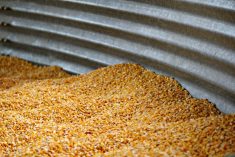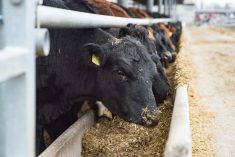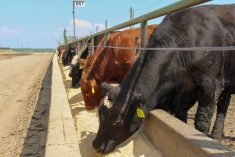CNS Canada –– Prairie feed barley prices continue to hang tough in March, locked into a range established early this year.
“We’re seeing a lot of bids in and around $205” per tonne, said Allen Pirness, a trader for Market Place Commodities at Lethbridge.
Bids had been hitting around $210 per tonne, for example, on Jan. 8.
“Feed barley is a little harder to come by these days,” he said, “but feed wheat is keeping it in check.”
The 2014-15 crop year saw a sharp reduction in barley production across Western Canada, with Agriculture and Agri-food Canada predicting ending stocks by July 31 of just 700,000 tonnes.
Read Also

Alberta crop conditions improve: report
Varied precipitation and warm temperatures were generally beneficial for crop development across Alberta during the week ended July 8, according to the latest provincial crop report released July 11.
“There’s a little bit of a switch in the cattle feeders towards feeding more wheat,” he said. “Some of this higher-fusarium wheat out of Saskatchewan is coming into southern Alberta and displacing some barley demand.”
U.S. corn remains too expensive for cattle feeders, according to Pirness.
“There was a small window last fall when it would have worked,” he said, adding that was no longer the case.
One bright side to the downgrade in the Canadian dollar, he remarked, is that freight rates have dropped by about 10 per cent. That downgrade has kept more shipments coming in from Saskatchewan than perhaps are normal.
Southern Alberta’s recent mix of rain and warm temperatures has made it difficult for trucks to get into some yards, but they are making do, said Pirness.
“I don’t think there’s any frost in the ground in any part of southern Alberta. This week we’ve had about half an inch of rain and six inches of snow so it’s good and wet,” he said.
Just a few days ago, he noted, grassfires had been ravaging nearby fields before the moisture came.
— Dave Sims writes for Commodity News Service Canada, a Winnipeg company specializing in grain and commodity market reporting.















